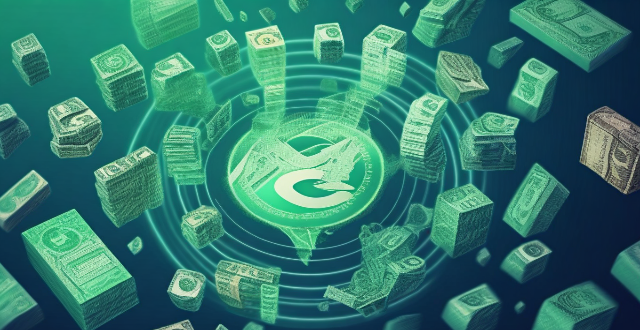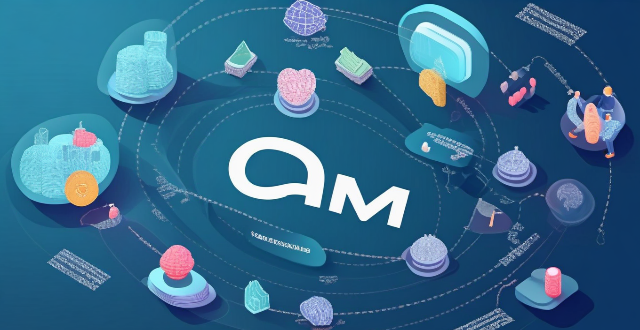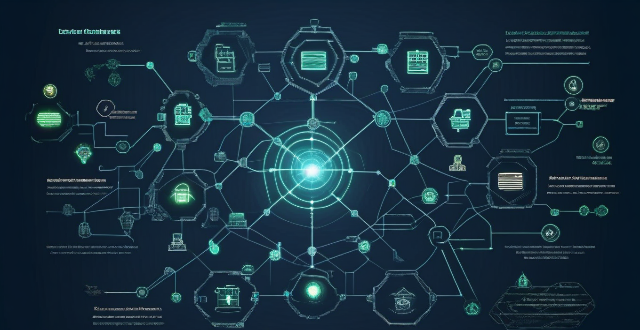Defi
Defi Finance Defi Risk Defi Financial Defi Include Defi Cost Defi Accessibility Defi Ring Defi Invest Defi Project Defi Crypto Defi Centralized Defi Token Defi Institution Defi Security Defi System Defi Government Defi Assets Defi Regulation Defi Service Defi Transparency Defi Trad Defi Challenge Defi Text Defi Curr
How does DeFi differ from traditional finance ?
DeFi is a financial system based on blockchain technology and smart contracts, while traditional finance relies on intermediaries like banks. Key differences include centralization vs decentralization, accessibility, transparency, security, cost efficiency, and regulation. DeFi offers advantages such as wider accessibility, higher transparency, and lower fees, but also comes with risks. It's important to research and consult professionals before making financial decisions.

Are there any risks associated with investing in DeFi ?
Investing in DeFi comes with risks such as smart contract vulnerabilities, impermanent loss, regulatory uncertainty, and lack of transparency. It is important for investors to carefully evaluate these risks before investing in any DeFi project.

How do DeFi tokens work ?
Decentralized Finance (DeFi) tokens are digital assets operating on blockchain technology, designed to facilitate financial transactions without intermediaries. These tokens can represent various assets like currencies, commodities, and cryptocurrencies. Key features of DeFi tokens include decentralization, smart contracts, and interoperability. They work through token issuance, utility within their respective projects or platforms, and governance mechanisms allowing holders to vote on important decisions related to the project's development. Benefits of DeFi tokens include accessibility, transparency, and innovation in financial products and services.

What is decentralized finance (DeFi) and how does it work ?
Decentralized finance (DeFi) is a financial system based on blockchain technology that operates without intermediaries like banks. It is transparent, borderless, permissionless, and interoperable. The core components of DeFi are smart contracts, cryptocurrencies, decentralized applications, and blockchain infrastructure. Users can access DeFi platforms through wallets, provide collateral for loans, earn interest by depositing their cryptocurrencies into lending platforms, trade assets peer-to-peer, get insurance against risks associated with smart contracts and cryptocurrency holdings, and have voting rights within the ecosystem. However, DeFi faces challenges such as scalability issues, regulatory uncertainty, security risks, and user experience complexity. Despite these challenges, DeFi has immense potential to democratize finance and provide inclusive solutions.

How can I get started with decentralized finance ?
Topic Summary: The text provides an overview of Decentralized Finance (DeFi) and its benefits, such as transparency, accessibility, efficiency, and innovation. It outlines steps for getting started with DeFi, including self-education on cryptocurrencies and blockchain, setting up a crypto wallet, acquiring cryptocurrency, connecting to a DeFi platform, exploring DeFi services like lending, borrowing, liquidity providing, yield farming, and tokenization, and practicing safe DeFi habits. The text emphasizes the importance of risk management, security, and continuous learning in navigating the evolving world of DeFi.

Is decentralized finance regulated by governments or financial institutions ?
The regulation of decentralized finance (DeFi) is a complex issue that involves both government and financial institutions. Governments can regulate DeFi indirectly through tax laws and anti-money laundering/know your customer (AML/KYC) laws, while also taking enforcement actions such as investigations, sanctions, and fines. Financial institutions may engage in self-regulation by establishing industry standards and best practices, building bridges with traditional finance, and offering insurance products tailored for DeFi risks. As the DeFi ecosystem continues to grow, it is likely that both government and financial institution regulation will continue to evolve.

What are the benefits of using decentralized finance ?
Decentralized finance (DeFi) is a sector within the cryptocurrency space that aims to create an open-source, permission-less, and transparent financial service ecosystem using blockchain technology. It offers several benefits over traditional financial systems, including increased accessibility, lower costs, greater transparency, enhanced security, programmable money, improved efficiency, and financial inclusion. By eliminating intermediaries and reducing overhead costs, DeFi makes financial services more affordable and accessible to a wider audience. Its transparent ledger system reduces fraud and increases trust among participants, while its secure blockchain networks protect user funds. DeFi also enables programmable money, allowing for customized financial products and services, and improves efficiency by streamlining transaction processing. Ultimately, DeFi has the potential to revolutionize finance by democratizing access to essential financial services for underbanked populations and bridging the gap between developed and developing countries in terms of financial access.

How secure is decentralized finance compared to traditional finance ?
The text provides a comparative analysis of the security aspects of decentralized finance (DeFi) and traditional finance (TradFi). DeFi relies on blockchain technology for peer-to-peer transactions, while TradFi operates through centralized institutions. Both systems have unique security features and risks, with DeFi offering transparency and automated contract execution but facing smart contract vulnerabilities and lack of regulatory clarity. TradFi benefits from regulatory oversight and physical security measures but is susceptible to systemic risks and cybersecurity threats. The choice between DeFi and TradFi depends on individual preferences and risk tolerance, and it's crucial to stay informed about new developments in the evolving financial landscape.

What are some popular DeFi platforms ?
Summary: The text provides an overview of popular DeFi (decentralized finance) platforms, including Uniswap, Compound, MakerDAO, Aave, and Curve Finance. Each platform has unique features that enable users to trade, lend, borrow, or earn interest on their crypto assets without intermediaries. These platforms utilize various models such as automated market makers, over-collateralization, flash loans, and innovative algorithms to facilitate transactions and maintain stability in a decentralized environment.

What is the future of blockchain beyond cryptocurrency ?
This article explores the potential applications of blockchain technology beyond cryptocurrency, highlighting key areas such as decentralized finance (DeFi), supply chain management, healthcare, government services, and intellectual property rights management. It emphasizes how blockchain can improve transparency, security, efficiency, and accessibility in these sectors through features like peer-to-peer transactions, smart contracts, tokenization, traceability, interoperability, data privacy, identity management, public records storage, voting systems, proof of ownership, streamlined licensing, and fraud prevention. The article concludes by stating that the future prospects of blockchain technology are vast and promising, offering numerous opportunities for innovation and transformation across various industries.

What is the future of cryptocurrency ?
The future of cryptocurrency is uncertain but will be shaped by trends like decentralization, adoption and integration, regulation and legal clarity, and innovation.

How does cryptocurrency affect the global economy ?
The rise of cryptocurrency is having a significant impact on the global economy. Its decentralized nature challenges traditional monetary policy, increases financial inclusion for underserved populations, spurs innovation in the financial sector, and raises regulatory challenges. However, it also presents risks such as fraud and scams, as well as environmental concerns due to high energy consumption in mining.